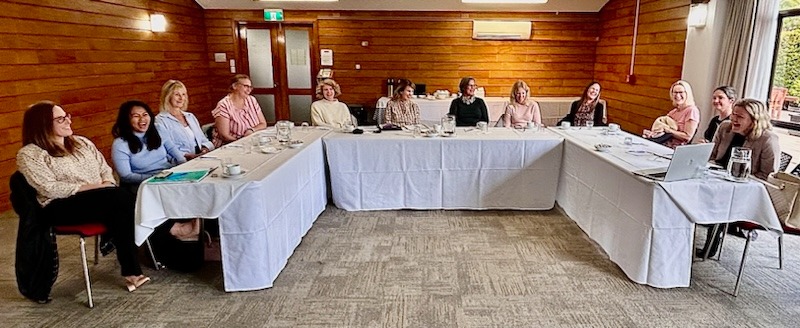The Reserve Bank has just cut the Official Cash Rate again this week. This is good news. It builds on the emerging confidence that has been starting to show it’s head.
At just this very inconvenient time, the scary tariff scenario hits centre stage!
So, doubts creep in.
Amid all the “to-ing and fro-ing” and negotiation games being played with tariffs, we understand it might be challenging to find a positive “go forward” mindset. A wait and see approach might feel like the one to take.
However, the problem with this, for businesses, is that the economy turns on confidence, and confidence breeds confidence. When we see others take positive steps forward, it encourages us to do the same. When no one takes the lead in this space, we stay stuck in the current environment. And if we want change for forward momentum in our business, we all have a part to play in getting things going again.
“If you think it’s going to rain, it will. “
Clint Eastwood.
This strongly filters through to your team and ultimately impacts your results. If your team sense hesitancy or negativity from you, they will behave accordingly. Engagement usually decreases, innovation is stalled, and productivity is low.
Expressing confidence when you don’t necessarily feel it can feel disingenuous. It can also undermine your team’s trust if the future picture doesn’t turn out as rosy as you promised.
The good news is that there is such a thing as realistic and cautious optimism and that forms a very important part of motivating your team in the right direction.
So, it is a delicate balance to get right. You need to build an environment of positivity and optimism, balanced with realism, to get optimum results right now.
“A positive mindset brings positive things.”
Peter Reiter.
So, where to start?
- Change your mindset – You get back what you project out, so what attitude are you showing your team? Things won’t get better unless you believe they will, so starting with your own motivation is the first step.
- What positive actions can you take? – A lot of what’s happening right now is beyond our control, but what is in your control? Can you increase your marketing efforts? Build stronger relationships with key clients? Make a product improvement? These forward actions will help you and your team start to build momentum and mean that you are well positioned when the market does improve.
- Express belief to your team – If you believe in yourself, believe in your business and believe in your team, despite the challenges, this is a powerful message. Communicating this to your team will help them to get in behind you and rise to the occasion.
- Celebrate the small wins and have a bit of fun – We all feel a lot better after a good laugh or something makes us smile. It is easy to let these things go when times are tough, but they are more important than ever at the moment. These don’t have to be costly exercises. Focusing on regular positive reinforcement, having a Friday BBQ, a shared morning tea – all easy to implement with such positive results.
Being deliberate about what energy and attitude you want to share with your team, and what you need from them will make a big difference to their efforts and the results you achieve.
And while we can’t influence a lot of what’s happening externally right now – each of us still have much that we can control. Focusing on this, doing it well and doing it deliberately will help your team, and your business keep scoring the runs you need right now.
Positive People have over 30 years’ experience helping to build positive high performing cultures. Contact us now on 09-445-1077 or info@positivepeople.co.nz to help you create a culture of realistic positivity.













